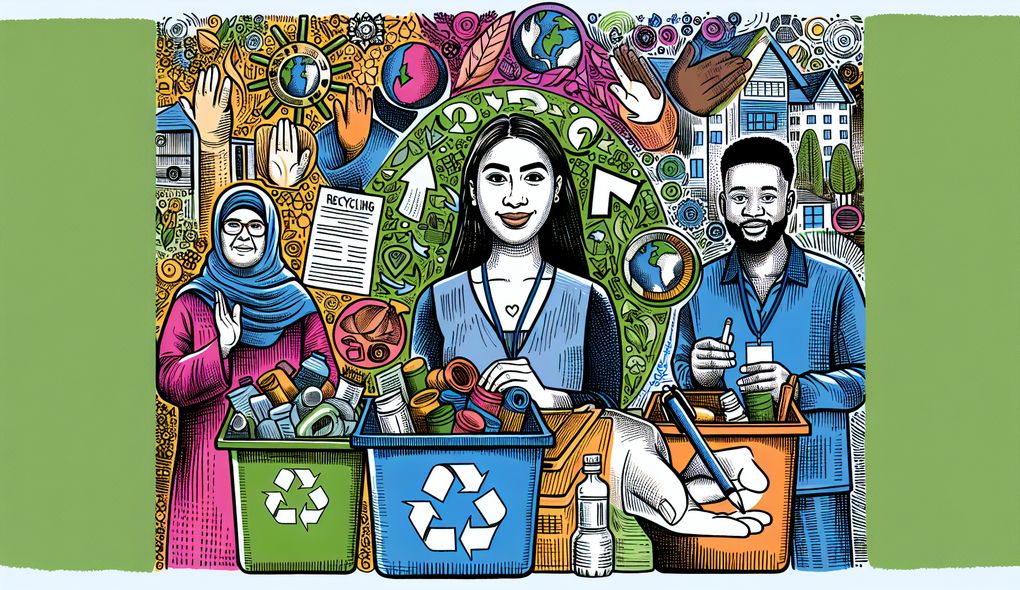Tell me about a time when you had to adapt a recycling program to meet changing regulations or market trends. How did you navigate the changes and ensure compliance?
SENIOR LEVEL

Sample answer to the question:
In my previous role as a Recycling Coordinator, I encountered a situation where we had to adapt our recycling program to meet changing regulations and market trends. The first step I took was to carefully analyze the new regulations and market trends to understand the specific changes that needed to be made. I then collaborated with the relevant stakeholders, including waste collection vendors and internal team members, to develop a plan to ensure compliance. We updated our collection procedures, modified the sorting and processing methods at our material recovery facility, and implemented new training programs for staff and clients to educate them on the changes. Throughout the process, I closely monitored the program's performance and conducted regular audits to ensure we were meeting the new regulations and aligning with market demands.
Here is a more solid answer:
In my previous role as a Recycling Coordinator, I encountered a situation where we had to adapt our recycling program to meet changing regulations and market trends. To navigate the changes and ensure compliance, I took a proactive approach. First, I conducted a comprehensive analysis of the new regulations and market trends to identify the specific modifications needed in our program. This involved studying industry reports, attending conferences, and consulting with experts in the field. Once I had a clear understanding of the requirements, I developed a detailed action plan in collaboration with the waste collection vendors, internal team members, and external stakeholders. The plan included updating our collection procedures to align with the new regulations, modifying the sorting and processing methods at our material recovery facility, and implementing new education and training programs for staff and clients to ensure everyone understood the changes and their importance. I also implemented a regular monitoring and reporting system to track the program's performance and compliance. This involved creating customized reports using waste industry software and databases, analyzing the data to identify areas for improvement, and implementing corrective actions as necessary. Through these efforts, we successfully adapted our recycling program to meet the changing regulations and market trends while ensuring compliance and maximizing recycling rates.
Why is this a more solid answer?
The solid answer provides more specific details about the candidate's experience in adapting a recycling program to meet changing regulations and market trends. It demonstrates how the candidate navigated the changes by conducting a comprehensive analysis, collaborating with stakeholders, and implementing a monitoring system. The answer also showcases the candidate's ability to analyze data, create reports, and communicate effectively.
An example of a exceptional answer:
In my previous role as a Recycling Coordinator, I encountered a situation where we had to adapt our recycling program to meet changing regulations and market trends. To navigate the changes and ensure compliance, I implemented a strategic and holistic approach. Firstly, I established a cross-functional team consisting of representatives from various departments, including waste collection, operations, finance, and legal. This team regularly met to discuss the latest regulations and market trends, analyze their impact on our recycling program, and brainstorm innovative solutions. We also leveraged external partnerships with industry associations, environmental agencies, and recycling technology providers to stay ahead of the curve and gain insights into best practices. As part of our adaptation plan, we conducted a thorough review of our existing recycling infrastructure and operations. This included assessing the capacity of our material recovery facility, optimizing our collection routes, and exploring new technologies for sorting and processing recyclables. Additionally, we engaged in extensive community outreach and education initiatives to ensure that our stakeholders were aware of the changes and actively participated in the recycling program. We organized workshops, hosted webinars, and collaborated with schools and local businesses to increase awareness and encourage participation. To ensure compliance, we implemented a robust monitoring and reporting system. This involved developing customized dashboards and real-time data tracking tools to monitor key performance indicators such as recycling rates, contamination levels, and vendor compliance. Regular audits and inspections were conducted to verify compliance with the regulations and identify any areas for improvement. Through this comprehensive approach, we successfully adapted our recycling program to meet the changing regulations and market trends, while achieving higher recycling rates and engaging the community in sustainable practices.
Why is this an exceptional answer?
The exceptional answer goes above and beyond by providing even more specific details and showcasing additional skills. It highlights the candidate's ability to establish cross-functional teams, leverage external partnerships, conduct thorough reviews of recycling infrastructure, and engage in extensive community outreach and education. The answer also emphasizes the candidate's expertise in monitoring, reporting, and driving continuous improvement. Overall, the exceptional answer demonstrates a deep understanding of the job requirements and a proactive approach to adapting the recycling program.
How to prepare for this question:
- Stay updated on the latest environmental regulations and market trends in the recycling industry. Subscribe to industry publications, attend conferences, and participate in relevant professional associations.
- Develop strong analytical skills to analyze data and create reports. Familiarize yourself with waste industry software and databases.
- Enhance your organizational and logistical planning skills. Learn techniques for managing complex projects and coordinating with multiple stakeholders.
- Focus on improving your communication and educational outreach abilities. Practice delivering clear and engaging presentations, organizing workshops, and fostering collaborations with internal and external stakeholders.
What are interviewers evaluating with this question?
- Knowledge of recycling processes and market trends
- Ability to analyze data and create reports
- Strong organizational and logistical planning skills
- Excellent communication and educational outreach abilities

